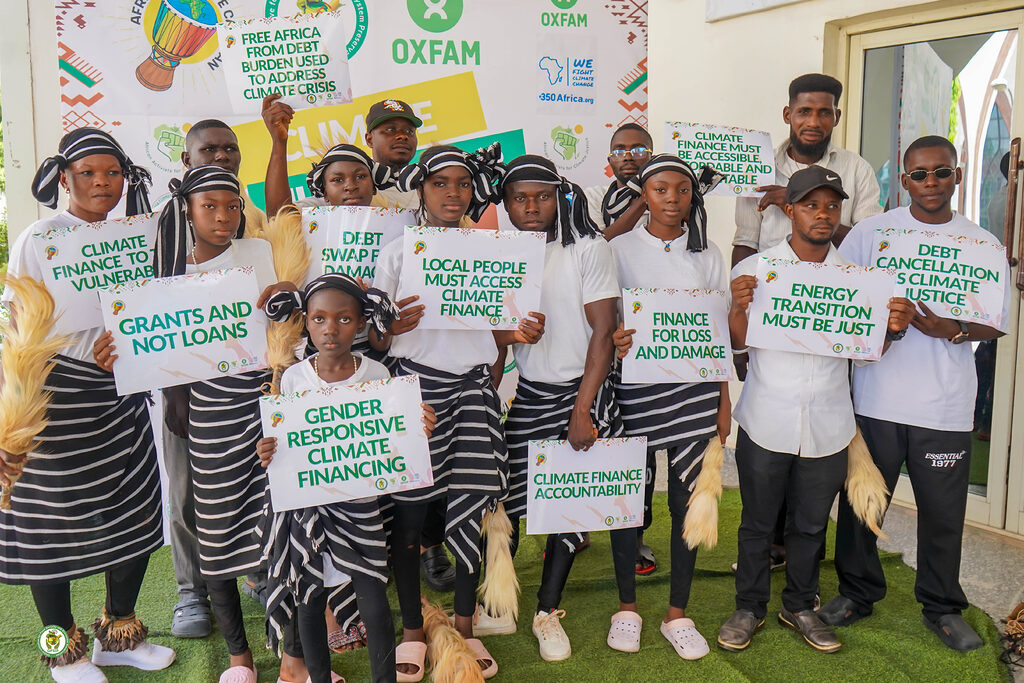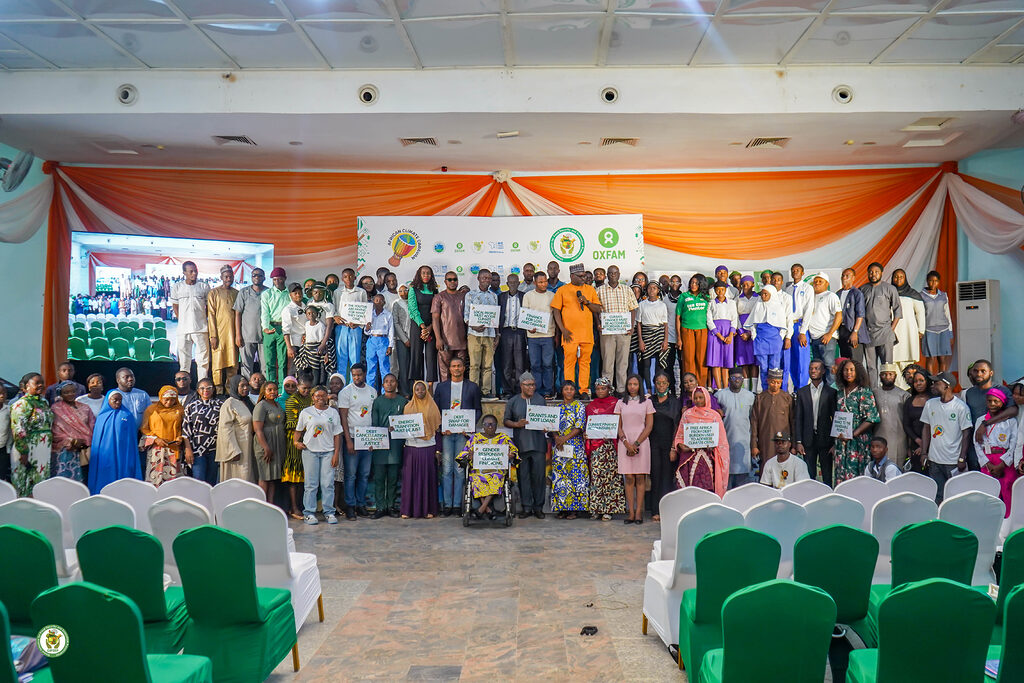In a vibrant blend of culture, community, and concise communication, African demands for climate justice took centre stage in Abuja, Nigeria, during the African Climate Caravan. Held on November 5, 2024, this impactful event was jointly organised by the Global Initiative for Food Security and Ecosystem Preservation (GIFSEP), OXFAM in Nigeria, and 350 Africa. Mobilising 150 participants from diverse sectors—including local communities, women, youths, civil society organizations (CSOs), persons with disabilities (PWDs), and government officials—the event highlighted Africa’s pressing need for equitable climate finance, debt cancellation, and African-driven strategies for transformative change.

The core message from the African Climate Caravan was unequivocal: climate finance to Africa should not come as loans but as grants. This clarion call highlights the continent’s urgent need for financial support that acknowledges its vulnerabilities and avoids compounding existing debt burdens. The event spotlighted the importance of accessible and adequate funding to tackle the disproportionate impact of climate change on African communities, emphasizing solutions that are both sustainable and inclusive.
Climate change has become one of the gravest global challenges of recent decades, drawing the attention of policymakers, activists, and communities worldwide. The Conference of Parties (COP) serves as a pivotal annual forum where representatives from 197 countries convene to negotiate global climate policies, track progress on climate goals, and address emerging issues. The 29th edition of COP is set to take place in Baku, Azerbaijan, from November 11 to 22, 2024. This year, Africa’s united voice, fortified by the deliberations at the African Climate Caravan, will resound firmly at the global stage, demanding climate justice and substantial financial commitments from world leaders.
The African Climate Caravan provided a platform for the discussion of the problems of climate change on the continent. It facilitated discussions on the effectiveness of current local climate initiatives, both at the community and policy levels, while also helping to formulate a clear, concise, and unified demand for COP29. Also, policymakers from Adamawa and Nasarawa states in Nigeria shared their experiences with legislative efforts to enact climate change laws that enhance adaptation and resilience at the subnational level. These examples of proactive governance highlighted the potential of localised policies to effect meaningful change.

The event concluded with resounding demands for accessible finance, sustainable energy transitions, debt relief, and African-led solutions. Participants called on global leaders to prioritize Africa’s unique climate challenges and ensure significant, justice-oriented actions at COP29.
